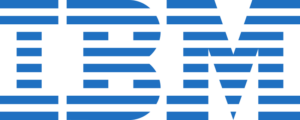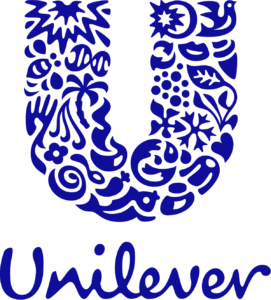Identity Review | Global Tech Think Tank
Keep up with the digital identity landscape.
In the fast-paced, technology-driven world of today, business leaders increasingly leverage artificial intelligence in HRM to streamline processes and drive innovation in the workplace. Utilizing Artificial Intelligence in human resource management has led to incredible improvements in terms of major increases in productivity by allowing for the following:
This article explores how 8 forward-thinking companies effectively integrate AI into their HRM strategies, transforming not only their recruitment process but also their talent development, employee engagement, and operational efficiency.

Renowned for its technological innovations, IBM has integrated AI into its HRM through Watson, its cognitive computing system. IBM’s Watson Talent is a suite of AI-powered products that focuses on talent management. Watson aids HRM in applicant screening, thus reducing the time HR spends reviewing applications. Additionally, Watson’s predictive analytics feature identifies patterns in employee behaviors and activities, alerting HR about potential resignations before they occur. This allows the company to retain talent proactively and mitigate the costs associated with employee turnover. As a result, IBM’s HR professionals can focus more on strategic tasks and less on administrative duties.

Global consumer goods giant Unilever revolutionizes its recruitment process with AI. Unilever uses an AI-powered platform developed by HireVue to digitize the early stages of its recruitment process. Candidates are asked to play neuroscience-based games and record video interviews that are analyzed using AI algorithms. This has allowed Unilever to process tens of thousands of applications, providing an unbiased evaluation of candidates. Notably, this approach has also reduced the time-to-hire from four months to just four weeks. This approach not only quickens the selection process but also eliminates unconscious bias, paving the way for more diverse and effective teams.
![]()
Google, a company always at the cutting edge of AI, uses machine learning in HRM to predict the best potential candidates for a job and employee job satisfaction. Google’s AI system, Google employs an AI-based system called Google Cloud Talent Solution, which uses machine learning algorithms to understand job content and match candidates to roles more effectively. Google’s HRM also uses “people analytics,” a data-driven method to understand and improve various aspects of employee experience and job satisfaction.

General Electric (GE) introduced an AI-powered HR application called ‘Humantelligence,’ which is an AI recruitment tool that evaluates the cultural fit of a potential hire by assessing their motivations, work style, and behaviors. By aligning these characteristics with the company’s culture, GE can predict how well candidates will integrate and perform within the company, resulting in better retention rates. Moreover, GE uses AI to identify areas where current employees need further development or training, helps with identifying employee skill gaps, fostering targeted professional development and talent retention, thus driving continuous growth within the company.

Starbucks leverages AI in HRM for predictive hiring and scheduling. Starbucks uses AI algorithms that consider multiple factors such as location, time of year, and local employment rates to forecast staffing needs. This leads to more accurate scheduling, reducing costs and preventing over- or understaffing. Such targeted staffing positively impacts the customer experience and promotes a more balanced workload among staff, reducing employee turnover. The company has reported significant improvements in staffing efficiency as a result.

Global consulting firm Accenture uses AI to eliminate bias in its hiring process. Its AI tool, called the ‘Accenture Recruitment Tool’, identifies and mitigates unconscious bias in job descriptions and interviews. By promoting objectivity in the recruitment process, Accenture fosters a more diverse workforce. The tool also automates routine HR tasks such as scheduling interviews and screening resumes, allowing HR personnel to focus on the more strategic goals of talent management.

Adidas, a multinational sportswear manufacturer, uses AI to forecast the need for specific job roles within the company. Through AI, Adidas can predict the demand for specific roles and skills, enabling proactive talent acquisition and development. It takes into account market trends, company growth, and strategic objectives to predict future talent needs. By proactively addressing these needs, Adidas can focus on acquiring and developing the right talent at the right time, ensuring that the company remains competitive in its industry. This practice helps Adidas maintain a competitive edge in the rapidly changing world of sportswear manufacturing.

Microsoft uses its AI platform, Azure, to predict workforce trends and predict employee attrition, allowing for proactive HR interventions for talent retention strategies. Microsoft also introduced ‘Workplace Analytics,’ which uses AI to study productivity patterns, providing valuable insights into how work gets done within the organization and identifying areas for improvement. They also created their ‘MyAnalytics’ tool uses AI to provide employees personal productivity insights into their work patterns, fostering self-improvement and enhancing productivity.
The integration of AI in HRM is not a distant dream but a present reality, as evidenced by the practices of these eight companies. By automating routine tasks, predicting employee behavior, and eliminating bias in recruitment, AI liberates HR professionals to focus on strategic, human-centric tasks that necessitate their expertise. It is a powerful catalyst to drive efficiency, innovation, and diversity in your organizations, putting you ahead of the curve in the ever-evolving business landscape. Harness the power of AI in HRM today, and redefine your approach to talent acquisition, development, and management for the future.
It’s important to remember, however, that while AI offers many benefits, it should be used as a tool to support, not replace, human judgment in HRM. The human touch remains crucial in areas such as relationship building, decision-making in complex situations, and providing empathy—areas where AI cannot fully replicate human abilities.
ABOUT IDENTITY REVIEW
Identity Review is a digital think tank dedicated to working with governments, financial institutions and technology leaders on advancing digital transformation, with a focus on privacy, identity, and security. Want to learn more about Identity Review’s work in digital transformation? Please message us at team@identityreview.com. Find us on Twitter.
RELATED STORIES